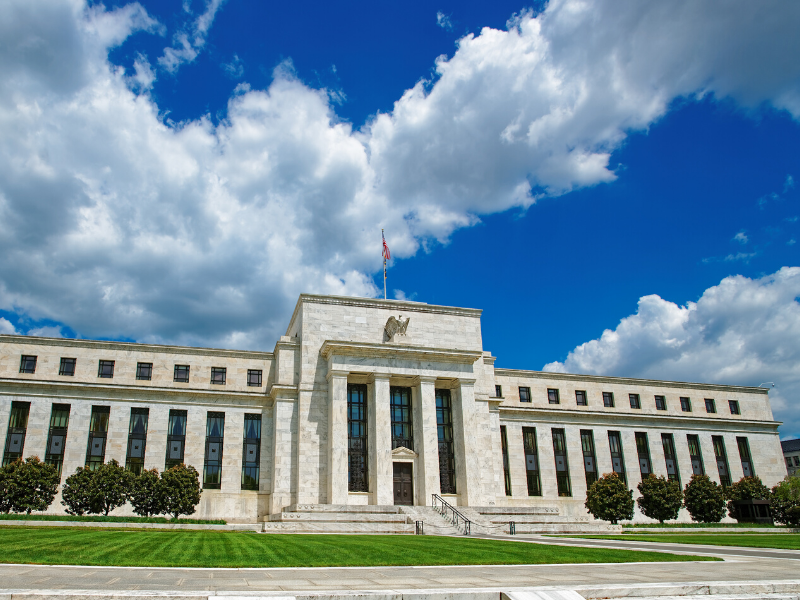New Report Shows U.S. Financial Regulators Still Far Lagging Behind Global Peers on Climate Action

Apr. 6, 2021 /3BL Media/ Despite recent progress from some financial regulatory agencies, the majority of U.S. financial regulators still lag far behind their global peers, and far behind what scientists and economists deem necessary to protect the U.S. financial markets from the systemic risks posed by the climate crisis—according to a new report released today from the Ceres Accelerator for Sustainable Capital Markets.
Steven M. Rothstein, Managing Director of the Ceres Accelerator for Sustainable Capital Markets at the sustainability nonprofit Ceres, said, “We’ve taken stock of where things stand, and the good news is that more regulators than ever are stepping up and speaking out about the systemic financial risks of climate change. The bad news is that they aren’t moving fast enough, many of their peers aren’t moving at all yet, and the dangers of inaction are mounting by the day.”
Momentum has grown for action by U.S. financial regulators in recent months: the Federal Reserve has affirmed climate change as a systemic financial risk, and has joined the Network for Greening the Financial System—a global climate club for central banks. On March 23, Federal Reserve Governor Lael Brainard announced at the Ceres Conference a new panel focused on financial stability risks and the possibility of climate stress tests for banks. The Securities and Exchange Commission (SEC) has created the first ever Senior Policy Advisor for Climate and ESG, and Acting Chair Allison Lee directing staff to enhance its focus on climate-related disclosures and request comments over the next two months. Secretary of Treasury Janet Yellen also affirmed climate change as a systemic risk, and will establish a climate hub at the Treasury department. The scope and scale of the financial risks posed by climate change calls for prompt action.
Turning Up the Heat: The need for urgent action by U.S. financial regulators in addressing climate risk, notes the significant developments in policy, regulation, finance and society that have taken place in recent months—including the U.S. election of President Biden, the Covid-19 pandemic and response, intensifying extreme weather, systemic racism and environmental justice. It includes a scorecard offering ratings for various U.S. financial regulators’ progress in addressing the systemic financial risks associated with climate change.
The report finds that most U.S. financial regulatory agencies still have not yet affirmed climate change as a systemic financial risk, and that even fewer have put in place systems to assess and mitigate that risk. Building on the Ceres Accelerator’s previous report, we provide eight clear recommendations for immediate action from financial regulators:
- Affirm the systemic nature of the climate crisis and outline action steps they will take to address the crisis.
- Develop specific plans for how climate change will be integrated into prudential supervision.
- Reinstate and reinforce the freedom of investors to address climate change risks.
- Mandate climate change disclosure.
- Include climate change in pandemic recovery responses.
- Integrate climate change resilience and racial equity into discussions on financial stability.
- Strengthen financial regulator coordination domestically and globally.
- Prioritize climate competence and enhance internal capacity.
The report also takes a first-ever look into the interplay between climate change as a systemic financial risk to the U.S. economy, systemic racism, and the Covid-19 pandemic recovery - illustrating how none of these issues exist in isolation.
“Climate change, systemic racism, and pandemic recovery must be addressed in an integrated manner. Financial regulators have the responsibility to ensure healthy capital markets for all participants, and that responsibility includes addressing inequities in market access and ensuring vulnerable communities don’t shoulder an unfair burden of the risks facing our system,” said Veena Ramani, Senior Program Director of Capital Market Systems at Ceres and lead author of the report.
“Ceres has been a pioneer on climate change and sustainability, and has been a valuable resource for the New York Department of Financial Services as we created a roadmap to ensure that our regulated institutions address the financial risks from climate change,” said Yue (Nina) Chen, Director of Sustainability and Climate Initiatives. at the New York State Department of Financial Services.
The Ceres Accelerator issued Addressing Climate Change as a Systemic Risk: A Call to Action for U.S. Financial Regulators in June of 2020, highlighting the systemic risk of climate change and issuing more than 50 recommendations for U.S. financial regulators. Investors with more than $1 trillion in assets under management endorsed the report, and sent letters to the heads of various financial regulatory agencies—urging them to take up its recommendations. More information here.
About Ceres
Ceres is a nonprofit organization working with the most influential capital market leaders to solve the world’s greatest sustainability challenges. The Ceres Accelerator for Sustainable Capital Markets is a center within Ceres that aims to transform the practices and policies that govern capital markets in order to reduce the worst financial impacts of the climate crisis. It spurs action on climate change as a systemic financial risk—driving the large-scale behavior and systems change needed to achieve a net-zero emissions economy.

